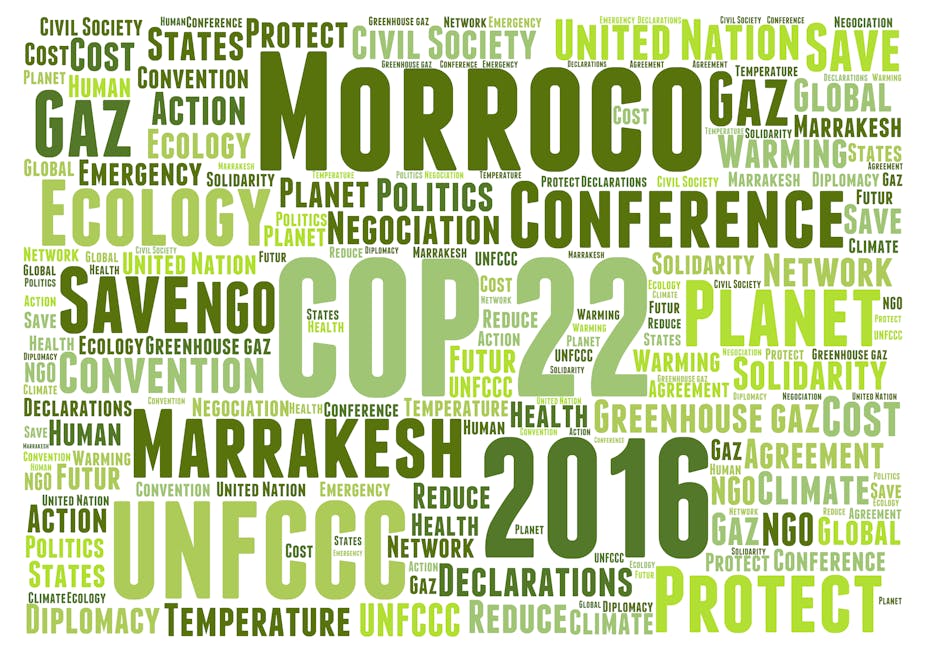The main objective of the Paris Climate Agreement is to limit the global temperature increase to well below 2°C while pursuing efforts to limit the increase to 1.5. The recognition of the 1.5 degree target is of central importance. This is because African countries are highly vulnerable to climate change.
Temperatures across Africa, however, are rising. This year marks the moment when carbon dioxide officially passed the symbolic 400 parts per million (ppm) mark. And, according to scientists, it will not return to below this in our lifetimes. The safe level of carbon dioxide in the atmosphere is 350ppm. Passing the symbolic 400ppm mark permanently is a clear sign that mean annual temperature rise in Africa is likely to exceed 2°C by the end of this century.
The deal struck last December under the United Nations Framework Convention on Climate Change in Paris marked a seminal moment in the development of the international climate change regime. The deal is also an important tool in mobilising finance, technological support and capacity building for developing countries to help them cope with and tackle climate change.
But the details still need to be worked out. As Patricia Espinosa, the Executive Secretary of the convention said:
while the Paris Agreement gave clear pathways and a final destination in respect to decisive action on climate change, many of the details regarding how to move forward as one global community in that common direction still need to be resolved.
The 22nd Conference of the Parties (COP22) taking place in Morocco holds considerable potential to accelerate and amplify the decisions made a year ago in Paris.
African concerns
In Cairo earlier this year African ministers of environment and representatives of more than 45 African countries welcomed the adoption of the Paris Agreement. They emphasised that the agreement accommodated many African concerns and interests. The meeting also stressed the need for African countries to continue engaging actively in climate change negotiations to provide further guidance on the implementation of the Agreement.
One of the most contentious issues on the table will be the progress towards mobilising the $100bn a year promised by developed countries to developing economies by 2020.
South Africa has played a leading role in helping to secure climate financing for developing countries. Ensuring meaningful progress on reaching this $100bn target will be a key element of South Africa’s proposed position in Marrakech.
But there is considerable concern about the promised $100bn and where it will come from.
Oxfam France recently complained that a recent meeting of European Finance Ministers gave no concrete indication about how they are going to increase the total amount of aid to meet the $100 billion objective. This omission is significant as the EU represents one of the main providers of development funding.
A paper published by the Indian Ministry of Economic Affairs questioned the findings of an earlier Organisation for Economic Co-operation and Development (OECD) report that said developed countries had mobilised $57bn of climate aid in 2013-14. Indian officials suggested that the true amount figure mobilised by rich countries may only be $2.2bn.
The discrepancy is important because the OECD’s report is accepted by developed countries as the basis of negotiations and evidence that there has been significant progress made towards the $100bn commitment.
In Marrakech South Africa’s will press for a clear pathway to realising the $100bn of climate finance per year by 2020.
Mitigation and adaptation
Another key element of South Africa’s proposed position for the conference is adaptation. The adaptation component of Nationally Determined Commitments is central to the call by a number of developing countries, particularly in Africa, for a balanced treatment of mitigation and adaptation. South Africa believes the agreement should address vulnerability, priorities, plans and actions, implementation and support needs, as well as adaptation efforts for recognition in the case of developing countries.
On mitigation, South Africa wants to see progress on the features and information contained in the Nationally Determined Contributions at COP22. This includes the consideration of common time frames for contributions to allow for effective global stocktaking and ratcheting up of country commitments in future. This is essential if the target of 2°C is to be met.
South Africa has ratified the agreement along with 17 other African countries. These are Algeria, Benin, Cameroon, Central African Republic, Cote D'Ivoire, Ghana, Madagascar, Mali, Morocco, Namibia, Niger, Rwanda, Senegal, Sierra Leone, Somalia, Swaziland and Uganda. Signing the agreement requires countries to adopt it within their own legal systems through ratification, acceptance, approval or accession.
They are among 92 countries to have ratified the terms of the agreement. This breaks all UN records when it comes to how fast an agreement enters into force.
But signatures alone won’t do the trick. Hard decisions must be made, and commitments must be backed up by concrete action. Developing countries like South Africa will be pushing for this to happen in Marrakech.

